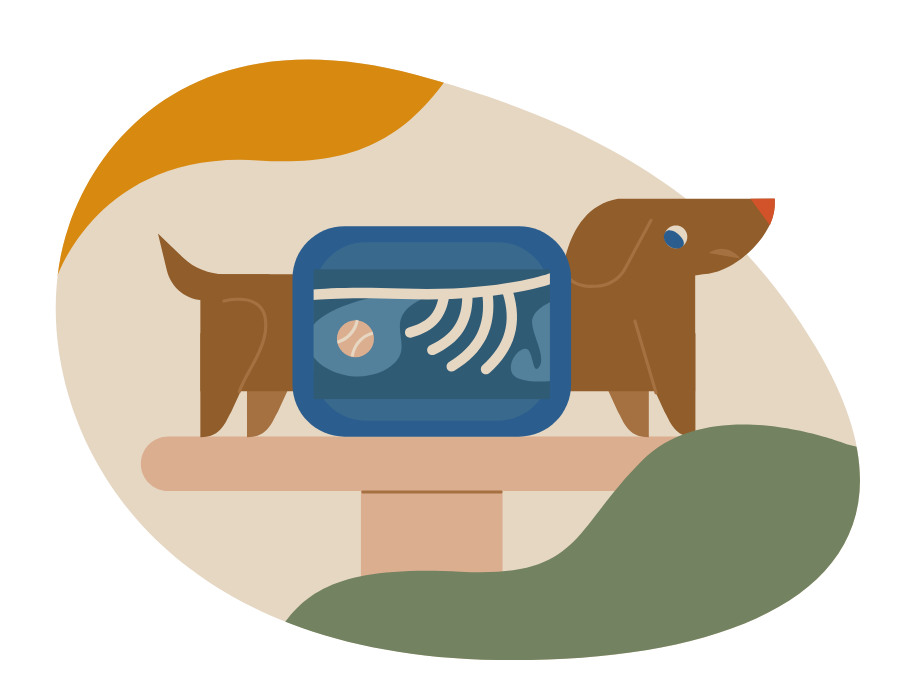
Vaccination services are offered at these locations:
- Papaya Veterinary Care-Carmel Valley
- Papaya Veterinary Care-Encinitas
- Papaya Veterinary Care-Culver City
Vaccinating your dog or cat is an essential part of being a responsible pet parent because it helps to ensure they live a long and healthy life – free of avoidable illnesses. How? By protecting them from contagious and potentially fatal diseases. That’s why kittens and puppies should receive a series of immunizations starting when they’re just a few weeks or months old.
What vaccinations does my dog need?
Your veterinarian will explain the specific vaccinations that are appropriate for your dog, but in general, dogs should be immunized against:
- Rabies: Mandatory for dogs in California; all dogs 4+ months of age must be vaccinated and revaccinations are required annually or every 3 years depending on vaccine type.
- Distemper: This core vaccine is highly recommended for all dogs. Canine distemper is a highly contagious and potentially fatal disease that can affect a dog’s respiratory, gastrointestinal, and neurological systems.
- Parvovirus: This highly contagious, potentially deadly viral disease is spread through feces. To build immunity, puppies are usually given the first vaccine between 6 and 8 weeks of age, followed by boosters every 3-4 weeks until 14-16 weeks of age. A booster is recommended within one year, then every 3 years for ongoing protection.
- Infectious hepatitis: This vaccine is typically given to puppies at 6-8 weeks of age as part of a routine vaccination series, with a second dose given a few weeks later; boosters are recommended annually or every 3 years.
- Bordetella: Protects against kennel cough, a contagious respiratory infection; it’s usually given to puppies starting at 6-8 weeks of age and requires lifelong booster shots, often annually or every 6 months. Recommended for dogs that spend time in kennels and/or around other dogs.
- Leptospira: Because of its increasing prevalence, this is now a core vaccine (as of 2024) recommended by the American Animal Hospital Association (AAHA) and the World Small Animal Veterinary Association (WSAVA), to begin at 12 weeks of age, 2 doses, 2-4 weeks apart, with annual boosters.
What vaccinations does my cat need?
In general, cats should be immunized against the following diseases:
- Rabies: While outdoor cats are at higher risk, indoor cats can be at risk from bats or other animals that may enter the home. All cats should receive an initial rabies vaccination at 12-16 weeks of age, with a booster shot in one year. After that, booster frequency is annually or every 3 years, depending on vaccine type and local regulations.
- Feline calicivirus (FCV): A highly contagious virus that causes respiratory infection and oral disease in cats. The FVRCP vaccine is a combination vaccine that protects against feline calicivirus as well as feline herpesvirus and feline distemper. Kittens typically receive their first FVRCP vaccine at 8-16 weeks of age, followed by boosters every 3-4 weeks until 16 weeks of age. Then they usually need booster shots every 1-3 years.
- Feline herpes virus: Also known as feline viral rhinotracheitis (FVR) or FHV-1, this is a highly contagious viral infection that causes upper respiratory tract and eye diseases in cats. See Feline Calicivirus (FCV) above for vaccination recommendations.
- Feline distemper: Also known as feline panleukopenia, feline parvovirus or feline infectious enteritis, this is a highly contagious viral disease that causes severe diarrhea and vomiting. See Feline Calicivirus (FCV) above for vaccination recommendations.
- Feline leukemia virus (FeLV): Feline leukemia virus can lead to anemia and cancer, and is ultimately fatal. This vaccine protects against FeLV infection; it’s a core vaccine for kittens under one year of age and is recommended for cats at risk of exposure (those that go outdoors or have contact with potentially infected cats). In kittens, two doses are given 3-4 weeks apart, followed by annual boosters for cats at risk.
Which Papaya locations offer dog and cat vaccinations?
Free your pet from the risks of many preventable diseases. Dog and cat vaccinations are offered at these Papaya locations:
- Papaya Veterinary Care-Carmel Valley
- Papaya Veterinary Care-Encinitas
- Papaya Veterinary Care-Culver City

